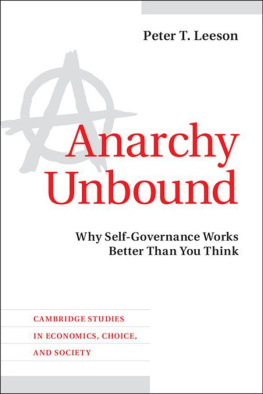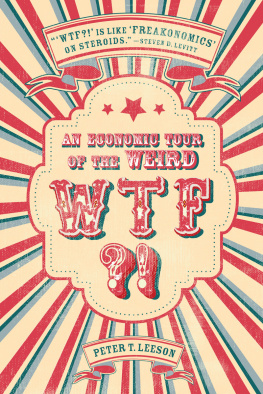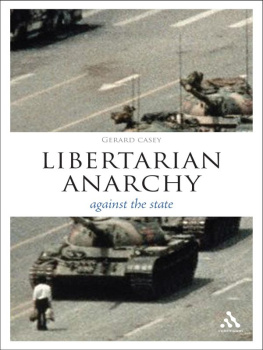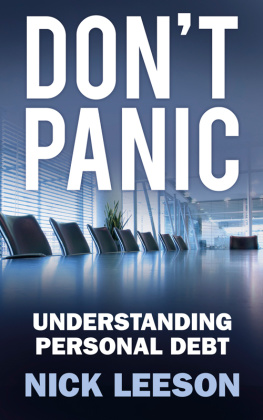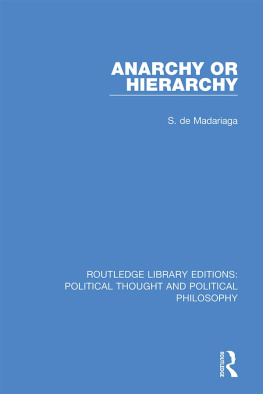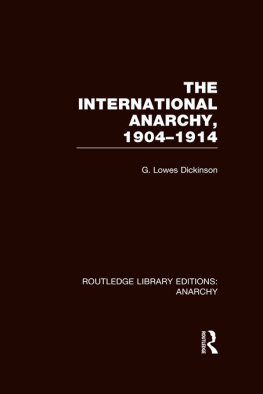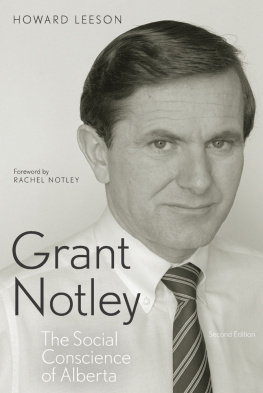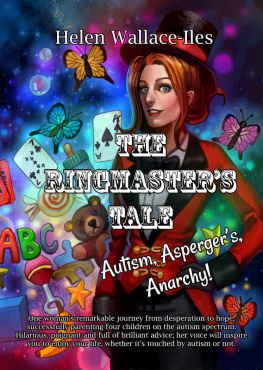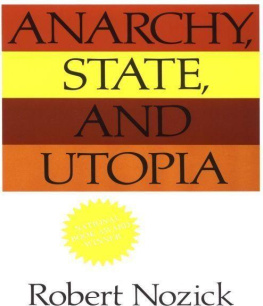Anarchy Unbound
Why Self-Governance Works Better Than You Think
In Anarchy Unbound , Peter T. Leeson uses rational choice theory to explore the benefits of self-governance. Relying on experience from the past and present, Professor Leeson provides evidence of anarchy working where it is least expected to do so and explains how this is possible. Provocatively, Leeson argues that in some cases anarchy may even outperform government as a system of social organization, and demonstrates where this may occur. Anarchy Unbound challenges the conventional self-governance wisdom. It showcases the incredible ingenuity of private individuals to secure social cooperation without government and how their surprising means of doing so can be superior to reliance on the state.
PETER T. LEESON is Professor of Economics and the BB&T Professor for the Study of Capitalism at George Mason University. He is also the North American editor of Public Choice . Previously, he was a Visiting Professor of Economics at the University of Chicago, the F.A. Hayek Fellow at the London School of Economics, and a Visiting Fellow in Political Economy and Government at Harvard University. Professor Leeson is the author of The Invisible Hook: The Hidden Economics of Pirates (2009) and a recipient of the Fund for the Study of Spontaneous Order's Hayek Prize, which he received for his research on self-governance.
Cambridge Studies in Economics, Choice, and Society
Founding Editors
Timur Kuran
Duke University
Peter J. Boettke
George Mason University
This interdisciplinary series promotes original theoretical and empirical research as well as integrative syntheses involving links between individual choice, institutions, and social outcomes. Contributions are welcome from across the social sciences, particularly in the areas where economic analysis is joined with other disciplines, such as comparative political economy, new institutional economics, and behavioral economics.
For a list of titles published in the series, please see .
Anarchy Unbound
Why Self-Governance Works Better Than You Think
Peter T. Leeson
George Mason University


32 Avenue of the Americas, New York, NY 10013-2473, USA
Cambridge University Press is part of the University of Cambridge.
It furthers the University's mission by disseminating knowledge in the pursuit of education, learning, and research at the highest international levels of excellence.
www.cambridge.org
Information on this title: www.cambridge.org/9781107629707
Peter T. Leeson 2014
This publication is in copyright. Subject to statutory exception> and to the provisions of relevant collective licensing agreements, no reproduction of any part may take place without the written permission of Cambridge University Press.
First published 2014
Printed in the United States of America
A catalog record for this publication is available from the British Library.
Library of Congress Cataloging in Publication Data
Leeson, Peter T., 1979
Anarchy unbound : why self-governance works better than you think / Peter T. Leeson, George
Mason University, VA.
pages cm. (Cambridge studies in economics, choice, and society)
Includes bibliographical references and index.
ISBN 978-1-107-02580-6 (hardback) ISBN 978-1-107-62970-7 (paperback)
1. Anarchism. 2. Autonomy. I. Title.
HX833.L4135 2014
321.07dc23 2013024739
ISBN 978-1-107-02580-6 Hardback
ISBN 978-1-107-62970-7 Paperback
Cambridge University Press has no responsibility for the persistence or accuracy of URLs for external or third-party Internet Web sites referred to in this publication and does not guarantee that any content on such Web sites is, or will remain, accurate or appropriate.
In loving memory of Douglas Bruce Rogers: student, collaborator, and friend
Contents
Acknowledgments
The ideas presented in Chapters of this book were developed with coauthors to whom Im greatly indebted: Alex Nowrasteh, David Skarbek, and Claudia Williamson. I also thank Scott Parris, my editor at Cambridge University Press, and Peter Boettke and Timur Kuran, the editors of Cambridge Studies in Economics, Choice, and Society, the series in which this book appears, for their encouragement and for providing me the opportunity to share my thinking about self-governance with others. As usual, Chris Coyne provided excellent thoughts and suggestions, which improved my discussion considerably. My discussion also benefited from the comments of three anonymous reviewers. Finally, I thank the Earhart Foundation for generously supporting this book.
1 Anarchy Unbound
This book consists of several essays. Their central argument is simple: anarchy works better than you think .
My thesis sets a low argumentative bar. If you're like most people, you don't think anarchy works at all. Such readers are in good company. One of the most important figures in the history of social thought, Thomas Hobbes, shared that thinking.
In 1651 Hobbes famously described life in anarchy as solitary, poor, nasty, brutish, and short. His reasoning is familiar. In anarchy, property is unprotected: there's nothing to prevent the strong from plundering the weak, the unscrupulous from bamboozling the unwitting, and the dishonest from defrauding the honest. There's no social cooperation, only social conflict, no civilization, only chaos.
Hobbes's path out of this anarchic jungle was government. By making and enforcing rules that protect individuals property, he argued, government will create social harmony. Indeed, government will create society.
Hobbes was wrong on both counts. Individuals have secured property protection and social cooperation without government and still do. Moreover, in much of the world, government has proved to be the greatest depredator of property rights, creator of conflict, and instigator of chaos, rather than an innocuous antidote to anarchic afflictions.
Govern ance social rules that protect individuals property and institutions of their enforcement doesn't require govern ment , which is but one means of supplying governance. Hobbes overlooked the possibility of self -governance: privately created social rules and institutions of their enforcement. He also underestimated the possibility of truly horrible governments. It's therefore unsurprising that he saw anarchy as anathema to society and government as its savior.
Some readers may not be quite so optimistic about government, or quite so pessimistic about anarchy, as Hobbes was. Today it's widely acknowledged that many governments fail to live up to what their advocates hope for. Indeed, some governments do far worse than that. Instead of promoting cooperation, governments in the Soviet Union, Nazi Germany, and North Korea, to name but a few, severely undermined cooperation in their societies (and in the case of North Korea still do), with devastating consequences. Because of this, you may be (or at least should be) less sanguine about the possibility of government as society's savior than Hobbes's rhetoric suggests.
Today it's also acknowledged that at least some social interactions can be, and are, carried off cooperatively without government's assistance. Hobbes's characterization of anarchy expresses basic prisoners dilemma logic. A well-known result of that logic is that mutual noncooperation is the unique Nash equilibrium when such games are played but once. An equally well-known result is the possibility of cooperative equilibria when they're played infinitely or terminate with some constant known probability.
Next page
